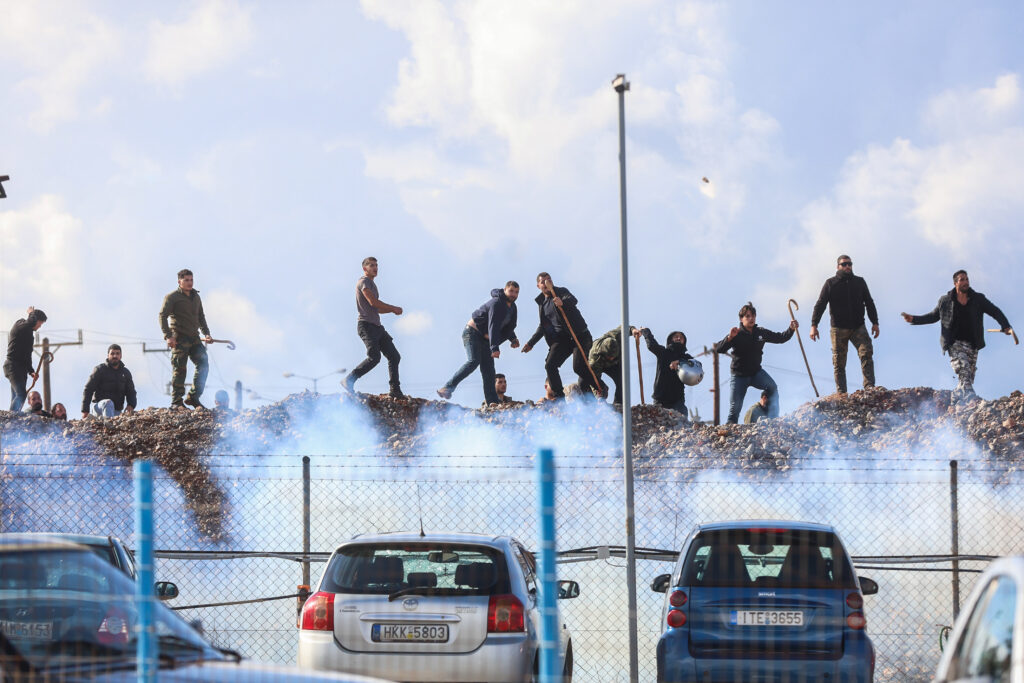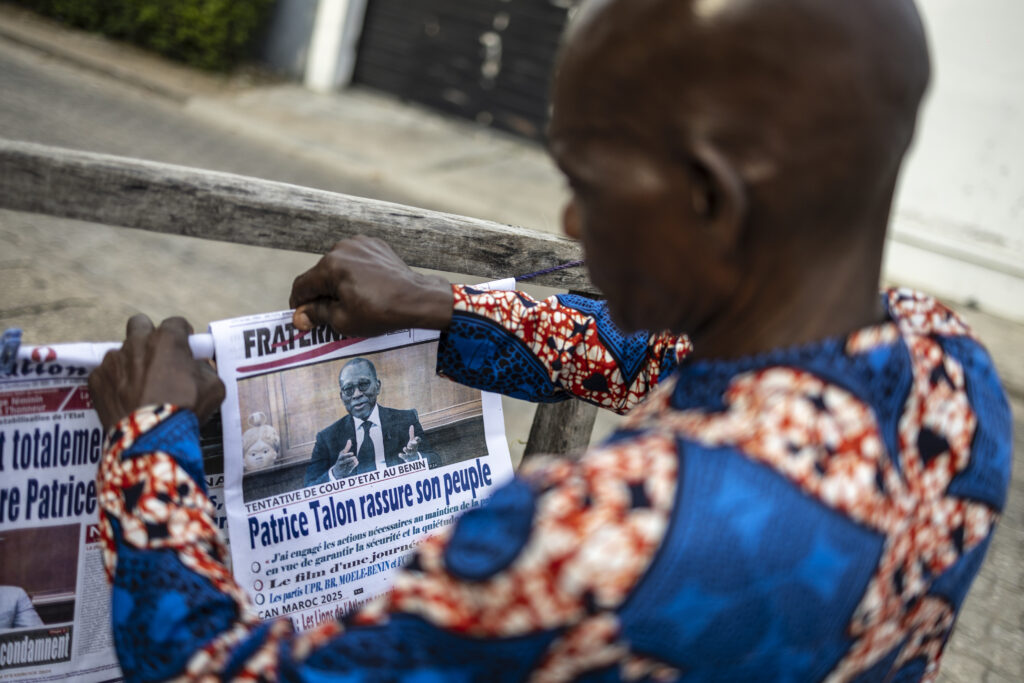Dans une France agricole affaiblie, la ministre de l’Agriculture Annie Genevard a pris un ton martial lundi pour appeler l’ensemble de la chaîne alimentaire “à agir” face à “la guerre agricole” qui “se prépare”, en lançant des conférences destinées à définir une stratégie nationale sur dix ans.”La guerre agricole menace chaque jour un peu plus et il est temps d’agir”, a-t-elle martelé, estimant que l’actualité mondiale, avec la guerre en Ukraine, la politique douanière américaine ou les taxes chinoises, dissipait “l’illusion” d’une prospérité durable.”Conquête”, “armer la France”, “patriotisme alimentaire”: depuis le marché de gros de Rungis, devant un mur de cagettes de fruits et légumes, elle a appelé à un “grand réveil alimentaire”. Pour la première fois depuis près de 50 ans, la balance commerciale agricole française pourrait être déficitaire en 2025.Depuis 2014, la Chine et les Etats-Unis ont augmenté le financement de leur politique agricole et alimentaire, respectivement de 40% et 86%, tandis que “celle de l’Union européenne a reculé de 19%”: “c’est une erreur historique”, a-t-elle déclaré, appelant à lutter “contre les tentations de la décroissance portées par quelques thuriféraires du décadentisme”.- Retour “symbolique” à Rungis -Devant 200 acteurs du monde agro-alimentaire, la ministre a lancé une série de “conférences de la souveraineté alimentaire”, promises par la loi d’orientation agricole de mars 2025. Ce chantier se déroulera sur plusieurs mois, par filières de production et au niveau régional, pour des conclusions en juin. Un point d’étape est prévu en février au Salon de l’agriculture.Ce lancement a été positivement accueilli par des acteurs industriels. “C’était un ton volontaire et réaliste”, a commenté Dominique Chargé, président de la Coopération agricole, qui regroupe plus de 2.000 coopératives.Mais l’événement a été boudé par les syndicats agricoles – à l’exception des Jeunes agriculteurs.Le premier d’entre eux, la FNSEA, participe bien aux conférences – qui ont déjà démarré – mais a boycotté un rendez-vous vu comme “une opération de communication”.Le puissant syndicat goûte assez peu ce retour “symbolique” à Rungis, où Emmanuel Macron avait en 2017 prôné une stratégie de “montée en gamme”, depuis percutée par l’inflation et la concurrence internationale.Huit ans plus tard, l’ambiance est morose. Après deux hivers de colère dans les campagnes, le monde agricole reste au bord de l’explosion, entre crises sanitaires et prix en berne.- “Incohérences” -Les manifestations d’éleveurs, soutenus par la Confédération paysanne et la Coordination rurale, se multiplient contre la politique d’abattage systématique de bovins touchés par la dermatose.La FNSEA, elle, prépare une manifestation le 18 décembre à Bruxelles contre l’accord de libre-échange UE-Mercosur. Ce lundi, une quinzaine d’agriculteurs des FDSEA de l’Oise et du Nord ont déposé devant le ministère un cercueil symbolisant la mort de l’agriculture et appelant “la France à faire bloc contre le Mercosur”.A Rungis, réitérant son opposition au Mercosur, la ministre a affirmé que si la Commission européenne ne le faisait pas, elle agirait: “J’interdirai moi-même les importations sur notre sol de produits contenant des substances interdites en Europe.”Elle a également plaidé pour la création d’un “fonds souverain agricole” et appelé les marchés publics à s’approvisionner en produits d’abord français.Dans l’auditoire, Aurélie Catallo, experte à l’Institut du développement durable et des relations internationales (Iddri), a estimé important que la France se préoccupe de l’ampleur de ses dépendances mais a relevé auprès de l’AFP “des incohérences” du discours dans un contexte de limites physiques et de rendements qui plafonnent.”Face au changement climatique, le productivisme a atteint ses limites”, a réagi Stéphane Galais, porte-parole de la Confédération paysanne, déplorant une vision de la souveraineté basée sur le “produire plus” et non sur la capacité d’une société à choisir son agriculture et son alimentation.Plusieurs filières soulignent que le temps n’est plus aux consultations mais aux décisions, après des “plans de souveraineté” dans plusieurs secteurs (fruits et légumes en 2023, blé dur et viande en 2024). Alors, qu’espérer de ces conférences ?L’objectif est de “partir de la demande des consommateurs, des débouchés, français, européens ou mondiaux, et de remonter jusqu’à la production agricole nécessaire”, a expliqué Ludovic Spiers, ex-directeur général du géant coopératif agricole Agrial, nommé “coordinateur général” du chantier.Des groupes de travail sectoriels sont prévus (cultures, viandes blanches, viticulture…), réunissant les interprofessions, l’amont (l’agriculture) et l’aval (la transformation)… mais pas les associations de consommateurs, ni de défense de l’environnement.








